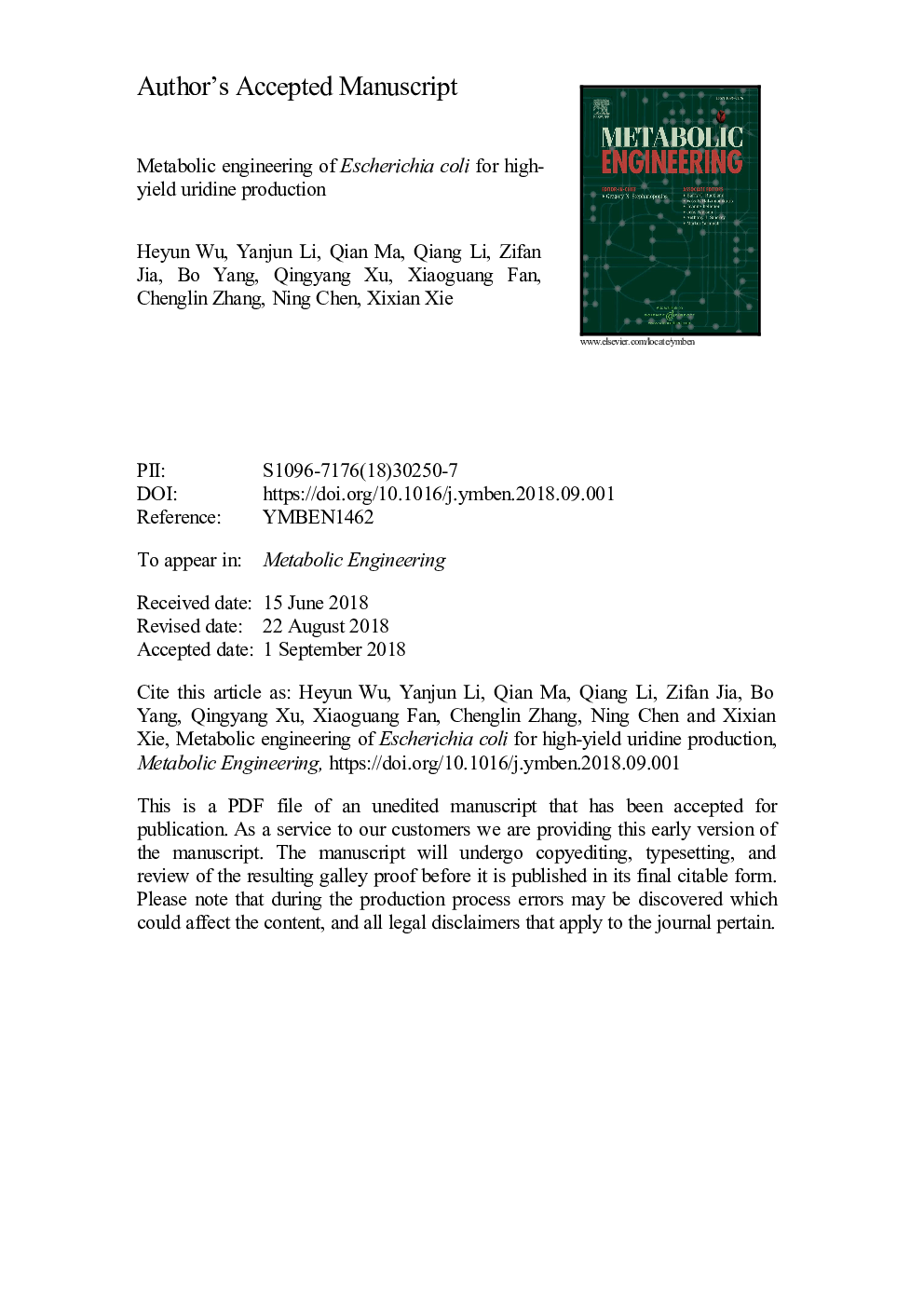| Article ID | Journal | Published Year | Pages | File Type |
|---|---|---|---|---|
| 10999845 | Metabolic Engineering | 2018 | 40 Pages |
Abstract
Uridine is a kind of pyrimidine nucleoside that has been widely applied in the pharmaceutical industry. Although microbial fermentation is a promising method for industrial production of uridine, an efficient microbial cell factory is still lacking. In this study, we constructed a metabolically engineered Escherichia coli capable of high-yield uridine production. First, we developed a CRISPR/Cas9-mediated chromosomal integration strategy to integrate large DNA into the E. coli chromosome, and a 9.7â¯kb DNA fragment including eight genes in the pyrimidine operon of Bacillus subtilis F126 was integrated into the yghX locus of E. coli W3110. The resultant strain produced 3.3â¯g/L uridine and 4.5â¯g/L uracil in shake flask culture for 32â¯h. Subsequently, five genes involved in uridine catabolism were knocked out, and the uridine titer increased to 7.8â¯g/L. As carbamyl phosphate, aspartate, and 5â²-phosphoribosyl pyrophosphate are important precursors for uridine synthesis, we further modified several metabolism-related genes and synergistically improved the supply of these precursors, leading to a 76.9% increase in uridine production. Finally, nupC and nupG encoding nucleoside transport proteins were deleted, and the extracellular uridine accumulation increased to 14.5â¯g/L. After 64â¯h of fed-batch fermentation, the final engineered strain UR6 produced 70.3â¯g/L uridine with a yield and productivity of 0.259â¯g/g glucose and 1.1â¯g/L/h, respectively. To the best of our knowledge, this is the highest uridine titer and productivity ever reported for the fermentative production of uridine.
Related Topics
Physical Sciences and Engineering
Chemical Engineering
Bioengineering
Authors
Heyun Wu, Yanjun Li, Qian Ma, Qiang Li, Zifan Jia, Bo Yang, Qingyang Xu, Xiaoguang Fan, Chenglin Zhang, Ning Chen, Xixian Xie,
